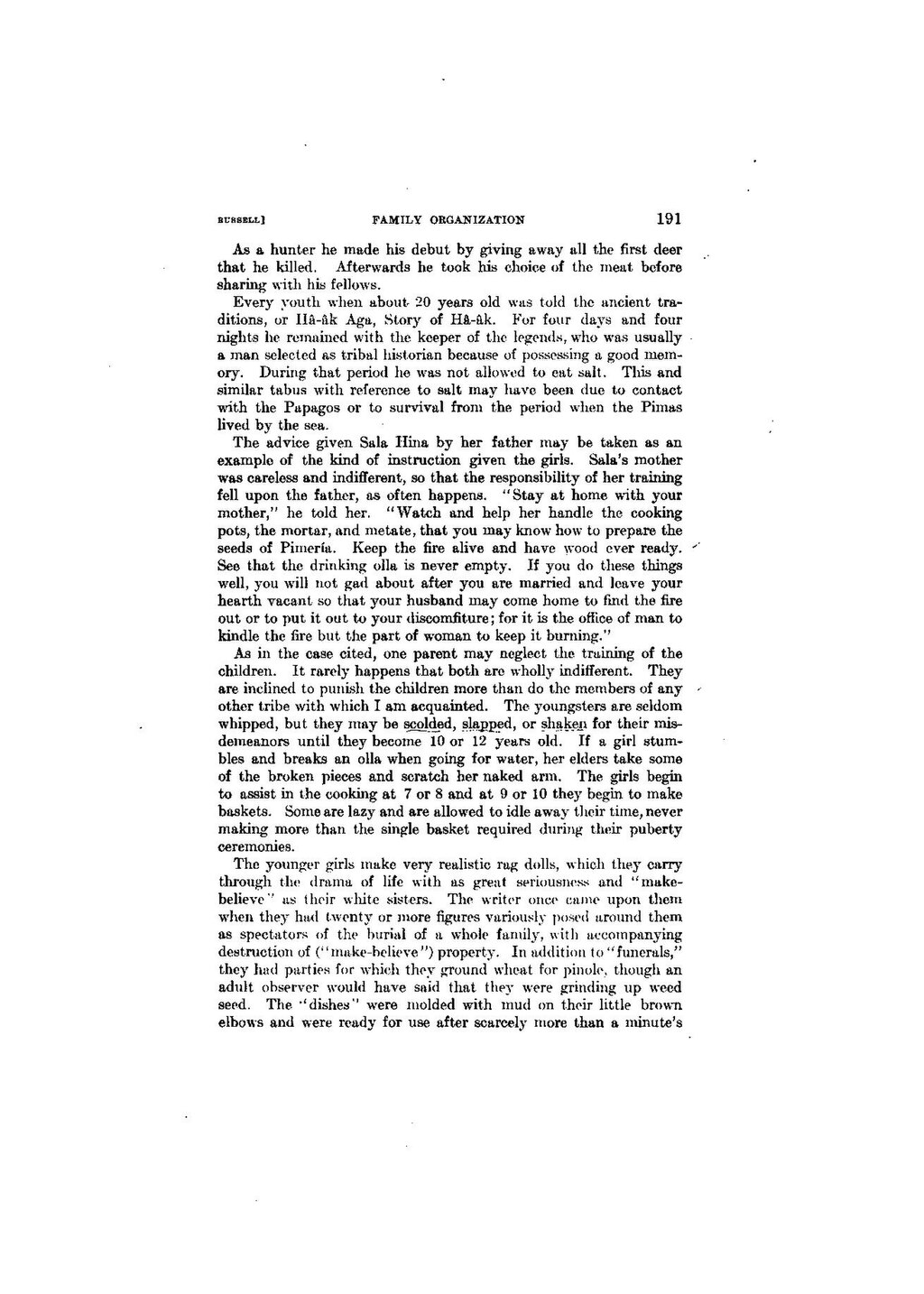As a hunter he made his debut by giving away all the first deer that he killed. Afterwards he took his choice of the meat before sharing with his fellows.
Every youth when about 20 years old was told the ancient traditions, or Ilâ-âk Aga, Story of Hâ-âk. For four days and four nights he remained with the keeper of the legends, who was usually a man selected as tribal historian because of possessing a good memory. During that period he was not allowed to eat salt. This and similar tabus with reference to salt may have been due to contact with the Papagos or to survival from the period when the Pimas lived by the sea.
The advice given Sala Hina by her father may be taken as an example of the kind of instruction given the girls. Sala's mother was careless and indifferent, so that the responsibility of her training fell upon the father, as often happens. "Stay at home with your mother," he told her. "Watch and help her handle the cooking pots, the mortar, and metate, that you may know how to prepare the seeds of Pimería. Keep the fire alive and have wood ever ready. See that the drinking olla is never empty. If you do these things well, you will not gad about after you are married and leave your hearth vacant so that your husband may come home to find the fire out or to put it out to your discomfiture; for it is the office of man to kindle the fire but the part of woman to keep it burning."
As in the case cited, one parent may neglect the training of the children. It rarely happens that both are wholly indifferent. They are inclined to punish the children more than do the members of any other tribe with which I am acquainted. The youngsters are seldom whipped, but they may be scolded, slapped, or shaken for their misdemeanors until they become 10 or 12 years old. If a girl stumbles and breaks an olla when going for water, her elders take some of the broken pieces and scratch her naked arm. The girls begin to assist in the cooking at 7 or 8 and at 9 or 10 they begin to make baskets. Some are lazy and are allowed to idle away their time, never making more than the single basket required during their puberty ceremonies.
The younger girls make very realistic rag dolls, which they carry through the drama of life with as great seriousness and "make-believe" as their white sisters. The writer once came upon them when they had twenty or more figures variously posed around them as spectators of the burial of a whole family, with accompanying destruction of ("make-believe") property. In addition to "funerals," they had parties for which they ground wheat for pinole, though an adult observer would have said that they were grinding up weed seed. The "dishes" were molded with mud on their little brown elbows and were ready for use after scarcely more than a minute's
